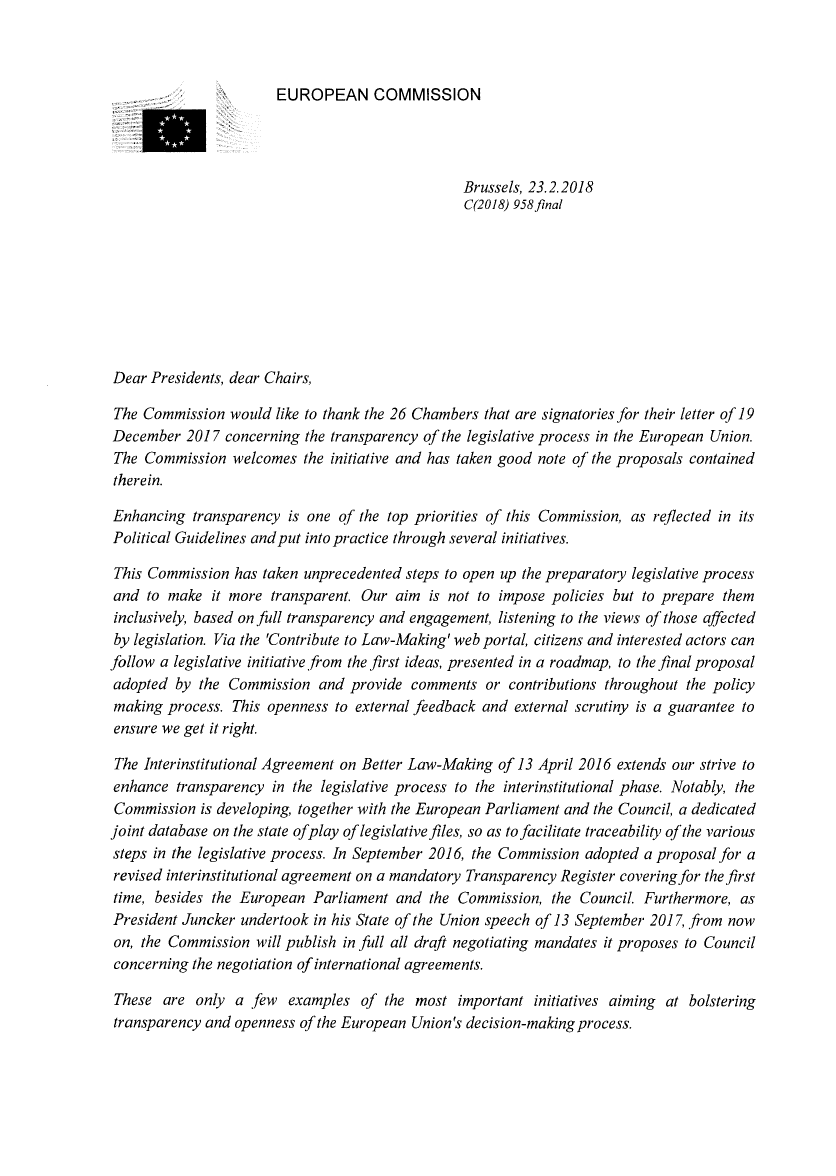
EUROPEAN COMMISSION
Brussels, 23.2.2018
C(2018) 958 final
Dear Presidents, dear Chairs,
The Commission would like to thank the 26 Chambers that are signatories for their letter of 19
December 201
7
concerning the transparency of the legislative process in the European Union.
The Commission welcomes the initiative and has taken good note of the proposals contained
therein.
Enhancing transparency is one of the top priorities of this Commission, as reflected in its
Political Guidelines and put into practice through several initiatives.
This Commission has taken unprecedented steps to open up the preparatory legislative process
and to make it more transparent. Our aim is not to impose policies but to prepare them
inclusively, based on full transparency and engagement, listening to the views of those affected
by legislation. Via the 'Contribute to Law-Making' web portal, citizens and interested actors can
follow a legislative initiative from the first ideas, presented in a roadmap, to the final proposal
adopted by the Commission and provide comments or contributions throughout the policy
making process. This openness to external feedback and external scrutiny is a guarantee to
ensure we get it right.
The Interinstitutional Agreement on Better Law-Making of 13 April 2016 extends our strive to
enhance transparency in the legislative process to the interinstitutional phase. Notably, the
Commission is developing, together with the European Parliament and the Council, a dedicated
joint database on the state ofplay of legislative flies, so as to facilitate traceability of the various
steps in the legislative process. In September 2016, the Commission adopted a proposal for a
revised interinstitutional agreement on a mandatory Transparency Register covering for the first
time, besides the European Parliament and the Commission, the Council. Furthermore, as
President Juncker undertook in his State of the Union speech of 13 September 2017, from now
on, the Commission will publish in full all draft negotiating mandates it proposes to Council
concerning the negotiation of international agreements.
These are only a few examples of the most important initiatives aiming at bolstering
transparency and openness of the European Union's decision-making process.